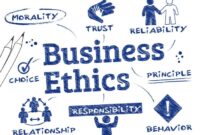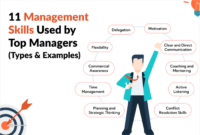Signs you ve outgrown your job – Signs You’ve Outgrown Your Job: We all crave growth, both personally and professionally. But what happens when your job becomes a stagnant pool, no longer nourishing your ambitions? The signs are subtle at first, a nagging feeling of discontent, a creeping boredom.
But these whispers can turn into a deafening roar, signaling it’s time for a change.
This isn’t about jumping ship at the first sign of trouble. It’s about recognizing when your current role no longer aligns with your aspirations, values, and overall well-being. This blog post will explore six key signs that you might be ready to move on, along with strategies for navigating this transition.
You’re Bored and Uninspired
Feeling a constant sense of monotony at work is a strong sign that you might be outgrowing your job. When you’re bored and uninspired, the days can feel like they drag on, and the tasks you once found engaging now seem tedious and unfulfilling.
The Impact of Boredom and Lack of Inspiration
When you’re not challenged or stimulated in your work, it can lead to a decline in motivation and job satisfaction. The lack of inspiration can make it difficult to stay focused, leading to decreased productivity and even burnout. You might find yourself constantly checking the clock, daydreaming, or feeling restless and unfulfilled.
Identifying Boredom in a Work Setting
Recognizing the signs of boredom is crucial for addressing the issue. Here are some common indicators:
- You find yourself constantly checking your phone or browsing the internet during work hours.
- You feel unmotivated to complete tasks and struggle to focus on your work.
- You experience a decline in your productivity and struggle to meet deadlines.
- You feel disengaged and apathetic towards your work and colleagues.
- You dread going to work and feel a sense of relief when the workday is over.
Addressing Boredom in a Work Setting
If you’re experiencing boredom at work, there are several steps you can take to address the issue:
- Seek out new challenges:Talk to your manager about taking on new responsibilities or projects that will allow you to learn and grow.
- Develop new skills:Enroll in online courses or workshops to acquire new skills that can be applied to your work.
- Connect with colleagues:Build relationships with colleagues and engage in conversations about work-related topics to stimulate your mind and gain new perspectives.
- Find ways to make your work more engaging:Look for ways to personalize your tasks or add your own creative touch to your work.
- Consider a career change:If your current job offers no opportunities for growth or stimulation, it might be time to explore other career options.
You Feel Stuck and Unchallenged: Signs You Ve Outgrown Your Job

Feeling stuck in your job can be a frustrating experience, often leading to a sense of disengagement and dissatisfaction. It’s important to distinguish between feeling stuck and being challenged. While challenges are opportunities for growth and learning, feeling stuck implies a lack of progress and development, which can negatively impact your motivation and overall job satisfaction.
Signs of Stagnation in a Career Path
Feeling stuck in a career path can manifest in various ways. It’s essential to identify these signs to understand whether you’re truly stagnating or simply experiencing a temporary lull.
- Lack of new challenges:When your work becomes repetitive and predictable, it can lead to a feeling of boredom and lack of purpose. You may find yourself completing tasks without any sense of accomplishment or growth.
- Limited opportunities for advancement:If you’re not given opportunities to learn new skills or take on more responsibility, it can signal that your career path is stagnant. This can be particularly discouraging if you have ambitions for professional growth.
- Lack of feedback and recognition:Receiving minimal feedback or recognition for your work can make you feel undervalued and unappreciated. This can lead to a decline in motivation and a feeling of being stuck in a rut.
- Decreased engagement and productivity:Feeling stuck can manifest in decreased engagement and productivity. You may find yourself procrastinating, lacking enthusiasm, or struggling to focus on your work.
Importance of Personal and Professional Growth in a Job
Personal and professional growth are crucial for a fulfilling and rewarding career. A job that fosters these aspects allows you to continuously learn, develop new skills, and progress towards your goals.
“A job that doesn’t offer opportunities for growth and development can feel like a dead end. It’s essential to be in a role that allows you to expand your skillset, take on new challenges, and progress towards your career aspirations.”
Your Values No Longer Align
Your values are the principles that guide your decisions and actions. They shape your priorities, your beliefs, and your overall outlook on life. As you grow and evolve, so too do your values. What was important to you in your 20s may not be as important to you in your 30s or 40s.
Enhance your insight with the methods and methods of meta turns to reels and metaverse to recover from first ever revenue loss.
This shift in values can be a significant factor in whether or not you feel fulfilled in your current job.
Identifying Misaligned Values
When your personal values no longer align with your company’s values, it can lead to feelings of dissatisfaction, frustration, and even burnout. For example, if you value work-life balance and your company has a culture of long hours and constant availability, you may find yourself feeling stressed and resentful.
Similarly, if you value creativity and innovation, but your company is rigid and bureaucratic, you may feel stifled and uninspired.
Tips for Aligning Personal Values with Career Choices
Here are some tips for ensuring your personal values are aligned with your career choices:
- Reflect on your values.Take some time to think about what is truly important to you in your work and in your life. What are your core values? What are your priorities? What are your non-negotiables?
- Research company values.Before accepting a job offer, do your research on the company’s values and culture. Look for information on their website, read employee reviews, and connect with current or former employees.
- Ask questions during the interview process.During your interviews, don’t be afraid to ask questions about the company’s culture, values, and work-life balance. This will give you a better understanding of whether or not the company is a good fit for you.
- Consider your long-term goals.Think about where you want to be in your career five, ten, or even twenty years from now. Do your current values align with your long-term aspirations? If not, it may be time to make a change.
You’re Constantly Stressed
Feeling perpetually overwhelmed and anxious at work is a strong indicator that your job might be taking a toll on your well-being. While a certain level of stress is normal, chronic work-related stress can have severe consequences for your physical and mental health.
The Signs of Chronic Work-Related Stress
Persistent stress at work can manifest in various ways, often impacting your physical and emotional state.
- Physical Symptoms:You might experience headaches, muscle tension, fatigue, digestive issues, insomnia, or a weakened immune system. These symptoms are your body’s way of signaling that you’re under stress.
- Emotional and Behavioral Changes:You may find yourself feeling irritable, anxious, or depressed. You might experience difficulty concentrating, making decisions, or controlling your emotions. Your behavior might change, leading to increased procrastination, avoidance of work, or even outbursts of anger.
- Changes in Work Habits:You might notice a decline in your work performance, increased errors, or a decrease in productivity. You might find yourself constantly checking emails or feeling the need to be constantly connected to work, even outside of work hours.
The Impact of Stress on Physical and Mental Health, Signs you ve outgrown your job
Chronic stress can have serious consequences for your overall well-being.
- Physical Health:Prolonged stress can weaken your immune system, making you more susceptible to illnesses. It can also contribute to cardiovascular disease, high blood pressure, and other health problems.
- Mental Health:Stress can trigger anxiety, depression, and burnout. It can also lead to difficulties in relationships, both personal and professional.
Strategies for Managing Stress in the Workplace
While it’s important to address the root causes of stress, there are strategies you can implement to manage stress levels effectively:
- Identify Stress Triggers:Become aware of the specific situations or tasks that trigger your stress response. This will help you develop targeted strategies for coping.
- Prioritize and Delegate:Create a realistic to-do list and prioritize tasks based on importance and urgency. If possible, delegate tasks to others to reduce your workload.
- Take Breaks:Schedule regular breaks throughout the day to step away from your work and recharge. Even short breaks can make a significant difference in reducing stress.
- Exercise Regularly:Physical activity is a powerful stress reliever. Aim for at least 30 minutes of moderate-intensity exercise most days of the week.
- Practice Mindfulness and Relaxation Techniques:Techniques like deep breathing, meditation, or yoga can help calm your mind and body.
- Seek Support:Don’t hesitate to talk to a trusted colleague, friend, or family member about your stress. Consider seeking professional help from a therapist or counselor if you need additional support.
You’re Looking for New Opportunities

It’s a natural human instinct to seek growth and development, and our careers are no exception. When you find yourself constantly looking for new opportunities, it could be a sign that your current job is no longer fulfilling your professional aspirations.
This desire for change often stems from a combination of factors, and understanding these reasons can be crucial in making informed decisions about your career path.
Reasons for Seeking New Opportunities
Many factors contribute to the desire for new job opportunities. These factors can be categorized into personal, professional, and external influences:
- Personal Growth:Seeking a new job can be driven by a desire for personal growth and development. This might involve taking on new challenges, expanding skill sets, or pursuing a different career path that aligns better with personal values and interests.
For instance, someone who enjoys working with people might seek a role in customer service or human resources, even if their current job is in a technical field.
- Career Advancement:The pursuit of career advancement is another common reason for seeking new opportunities. This could involve aiming for a promotion, a leadership role, or a move to a company with greater opportunities for growth. An example of this would be a software engineer who seeks a new job at a tech startup to gain experience in leading a development team.
- Financial Stability:Financial considerations can also play a significant role in seeking new opportunities. This might involve searching for a job with a higher salary, better benefits, or greater potential for bonuses and incentives. A person might look for a job in a different industry with higher earning potential, even if it requires a change in career path.
- Work-Life Balance:The desire for a better work-life balance is a growing concern for many professionals. This might involve seeking a job with flexible work arrangements, a shorter commute, or a more supportive company culture that prioritizes employee well-being. A parent might seek a remote work opportunity to spend more time with their family.
- External Factors:External factors like industry trends, company restructuring, or economic conditions can also influence the decision to seek new opportunities. For instance, a person working in a declining industry might seek a job in a growing sector to secure their future.
Examples of Career Transitions
Career transitions can be transformative experiences, offering both personal and professional growth. Here are some examples:
- Shifting Industries:A successful lawyer might decide to pursue a career in teaching, leveraging their communication and analytical skills in a new setting. This transition allows for personal fulfillment by aligning with a passion for education while utilizing existing skills.
- Entrepreneurship:An experienced marketing professional might decide to launch their own consulting business, utilizing their expertise and building a brand around their unique skills and knowledge. This transition offers greater autonomy and the opportunity to create something new.
- Returning to Education:A seasoned professional might decide to return to school to pursue a graduate degree or acquire new skills in a rapidly evolving field. This transition can lead to career advancement, increased earning potential, and a renewed sense of purpose.
Tips for Exploring New Career Paths
Making a career transition requires careful planning and exploration. Here are some tips for navigating this process:
- Self-Assessment:Start by understanding your skills, interests, and values. Consider what motivates you, what you enjoy doing, and what you are good at. Reflect on your past experiences and identify areas where you excel.
- Research:Explore different career paths that align with your interests and skills. Use online resources like job boards, industry websites, and professional networking platforms to gather information about different industries, roles, and companies.
- Networking:Connect with people in your target industry through professional events, online communities, or mentorship programs. Networking can provide valuable insights, industry connections, and potential job leads.
- Skill Development:Consider taking courses, workshops, or online training programs to enhance your skills and knowledge in your desired field. This can make you more competitive in the job market and increase your chances of success.
- Career Counseling:Consult with a career counselor or coach to receive personalized guidance and support throughout your career transition. They can help you assess your skills, explore career options, and develop a strategic plan for your job search.





